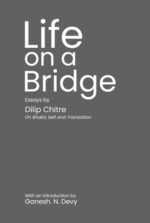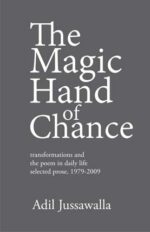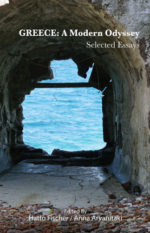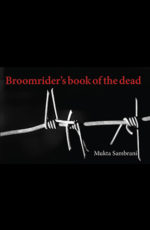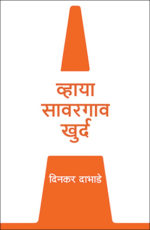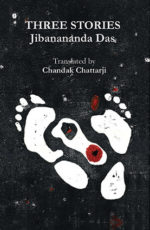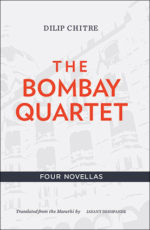-
Life on a Bridge
$30About the Book
The essays and transcripts of Dilip Chitre brought together here are valuable in themselves as they offer a commentary on the Indian sense of tradition and the contemporary attitudes to literature. Every piece is of interest in itself. But, their greater worth lies in that they articulate the perspective of one of our most admirable poets on many issues that mattered to him. Taken together, they provide a basis for fathoming his poetry and should help us in making a more nuanced sense of it. Chitre was a fascinating poet, but it is not possible to say that his poetry was easily accessible to most of his readers. Like W. B. Yeats, he weaves in his poems experiences that arise in a given moment (such as the felling of a tree in his father’s house) together with many layers of timeless human quests and anxieties. He brings together silence and euphoria in an imagistic mix that is difficult to name with any precision. It is hence that this
volume of his comments, essays, lectures and other texts should be of importance for the lovers of Dilip Chitre’s literary works.– Ganesh N Devy
-
The Magic Hand of Chance
$24ABOUT THE BOOK
Covering a range of subjects, mainly to do with poetry, its daily interventions, its work, this book adds to the selections of Adil Jussawalla’s prose that have appeared before: in Maps for a Mortal Moon, and in I Dreamt a Horse Fell from the Sky. In his chapter on Jussawalla in a forthcoming book, Vidyan Ravinthiran says ‘[His} time-shifts don’t feel erratic because his prose only becomes inexact when to do so seems the only option – when it comes to resisting subliminal pressures. Every sentence is saturated with thought, changes are rung on prior phrases, in a manner inspired by real-world vexations but not without an element of self-relishing play.’
Poetrywala is happy to offer you more such prose.
‘To observe, to give witness, to hold in the memory the bereaved cow, the boy who has come to deliver the groceries, the poet in transit, the little boy who wet his pants laughing and who wept because a bird died, all these pass under the Jussawalla scanner, all these are transformed by the act of writing. Jussawalla’s fight against the Indian predilection for amnesia is relentless. He will not let you forget.’ – Jerry Pinto, from his Introduction in Maps for a Mortal Moon
‘Jussawalla’s curiosity is patently omnivorous and extends far into many disciplines and knowledges, drawing not least on Parsi, Hindu and Christian sources, science and social science, local politics or birdwatching. A continual subtheme throughout is the memory of Britain and Europe in the post-war years… considered not from an outsider’s point of view but with the deepest sympathy.’
– Vivek Narayanan, from his Introduction in I Dreamt a Horse Fell from the Sky
-
Inverse
$20About the Book
Rodríguez Núñez’s poetry has long been well-received in the Spanish-speaking world, by his predecessors and contemporaries alike. Juan Gelman (Argentina), for many the best contemporary Latin American poet, considers him to be a “true poet… baptized by poetry at birth.” And Raúl Zurita (Chile) declares, “Víctor Rodríguez Núñez’s poetry represents a profound renewal of poetic language. It forces us to see that poetry accounts for itself precisely because it accounts for the world.”
Likewise, his work has made a great impact far beyond the borders of the Spanish language. Lasse Söderberg (Sweden) writes, “[b]eing an independent Cuban poet is hard. Supporter or dissident?… Rodríguez Núñez doesn’t write the way either side expects him to.” John Kinsella (Australia) notes this poetry demonstrates a “stunning brinkmanship in imagery and poetic imagination that leaves the reader breathless and astonished. Technically, his is one of the most assured voices in contemporary poetry.”
And then, to ask myself, as his translator into English, how to cross the borders of language? With the same defiance found in the original. To avoid the trap of exotification, striking a balance between… the strangeness of certain words unlikely to
be associated with what is “typically Cuban,” and the similar strangeness of keeping words only a Cuban would understand. Inverse serves to introduce Indian readers to one of contemporary poetry’s most relevant, powerful voices. These poems challenge every limit; here, commitment and experimentation, emotion and lucidity, what is another’s and our own, the writer and the reader, come together.Katherine M. Hedeen
-
Greece, a modern Odyssey: selected essays
$24About the Book
This outstanding collection of personal essays, sharp analysis, unusual photographs, and poetic reflections focuses on Greece and its people as they found themselves in the eye of a storm that continues to shake Europe and the world. Ranging widely from economics and politics to social and environmental issues, and from cultural and diasporic interactions to literature and the arts, the essays and other materials have been put together in ways that attract, inform, and challenge the reader no matter where she or he may reside. Presenting a roster of distinguished contributors, the editors offer a variety of perspectives, points of information, and allusions, which substantially add to ongoing debates on how individuals and groups may proceed in challenging circumstances. Greece: A Modern Odyssey is being published by Mumbai-based Paperwall Media & Publishing, in memory of the late Hatto Fischer, the German poet and philosopher who lived in Greece and brought this volume together with his wife Anna Arvanitaki.
-
Broomrider’s book of the dead
$26About the Book
Mukta Sambrani’s The woman in this room isn’t lonely is a book of surprising intensity and imagination. Sambrani has a lyricism and fanciful imagination seldom seen in English-language poetry in recent decades. A poem about a man and woman in bed is anything but sentimental. Sambrani’s economy, independence of mind, hard-headedness and irony combine into a rapidly dramatic scene, which within twelve lines becomes grotesquely comic…By now there is a tradition in Indian poems of the coming of poetry as something mysterious. Sambrani’s version is totally unexpected. Bruce King, Modern Indian Poetry in English. Mukta Sambrani’s poems in Broomrider’s book of the dead are notable for their extreme strangeness. The book-length sequence is presented as the working manuscript of its fictional protagonist, Anna Albuquar, whose project is to ‘renegotiate the idea of authorship.’ There are asides, hesitations, false starts, instructions to the reader, and throughout, a steadfast regard for language. Jeet Thayil in Fulcrum and Bloodaxe book of contemporary Indian poets Broomrider’s Book of the Dead…is experimental in every sense… a crowded collage and an eloquent concoction that will make you look up all the references it states or implies…Sambrani said that her protagonist was obsessed with capturing memory “beyond constraints of time and place, beyond decay, illness and the failing of the body. She is obsessed with writing about writing. I am curious about the architecture of our experience. As we move toward a world that is hyper-digitised, our psyches become more and more of an orchestration of fragments of media, sights, sounds, words and visuals. Anna’s writing leans back to lean forward. It captures the history of writing through writing in a world that constructs itself out of fragments of media.Lora Tomas in The Sunday Guardian
-
Via Savargaon Khurd
$30About the Book
Via Savargaon Khurd is Dinkar Dabhade’s third novel. This novel focuses on the joys, pains, and the social issues in the lives of the rural dwellers. The writer brings to light the dilemmas, poverty and the dominance the poor suffer. The sorry plight of the farmer who faces a drought year after year; the status of women in the male-dominated society and the rampant exploitation of the weak which is prevalent.
-
Three Stories – Jibanananda Das
$10About the Book
Reading Jibanananda Das’s stories is like entering straight into the middle-class Bengali mind with its desire, ambition, morbidity and despair. Through the narratives around three men whose melancholy defines the structure of these three stories, the writer re-examines the concepts of success and failure, desire and fulfillment, love and weariness, ennui and death. While the insights are those of a poet, these stories marked by Jibanananda’s deep involvement with Bengali landscape, cuisine and culture, transcend his lyrical impulse to become proper, if technically innovative, short stories with the touch of a master of the genre. Chandak Chattarji’s English versions have been able to capture the provincial setting and style of the original narratives keeping intact their nuanced psychological implications and larger insights into the human condition.’ – K. Satchidanandan ‘It has been a privilege to discover Das the writer of fiction through Chandak Chattarji’s elegant and sensitive translation of three of the master’s short stories, ‘Chhaya Nat’ (‘Shadow Play’), ‘Gram o Shohorer Galpo’ (‘Tale of City and Village’), and ‘Bilash’ (which retains its original title here).’ – Ranjit Hoskote
-
The Bombay Quartet
$16About the Book
Jayant Deshpande was born in India in 1952, but lived abroad for many years before returning to India in 1984. He was educated in India, Africa, and then largely in Canada, where he graduated from Western University and the University of Toronto. His interests include music, photography, literature and translation, science, philosophy as well as essay writing. Since 2002 he contributed to the Mumbai-based quarterly New Quest and was later its assistant editor till 2010. He has published his English translations of selected short fiction in Marathi by Dilip Chitre, Bhau Padhye and Baburao Bagul.

